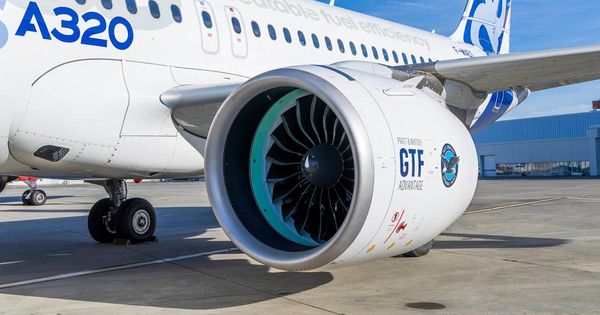In the wake of the major escalation in the conflict between Israel and Hamas in Gaza in recent weeks, airlines serving Tel Aviv's Ben Gurion Airport (TLV) have been forced to suspend service and serve passengers through "nearby" airports like Amman, Jordan (AMM), Cairo, Egypt (CAI), and Athens, Greece (ATH).

Airlines have added capacity to accommodate passengers seeking repatriation and other stranded passengers in Israel looking for a way out. However, Israel's flag carrier, El Al, has found itself in a tricky situation where Israelis abroad looking to come home and soldiers needing to return to the country are forced to fly into Ben Gurion Airport.
Moreover, with so many expat Israelis looking to return home, El Al's widebody fleet consisting of 777s and 787s still needs to be larger in some instances to handle the demand. The 270-seat Boeing 787s sometimes carried up to 30 extra passengers.

On most flights, that would be strictly against safety regulations. Still, in wartimes, El Al has been able to, with passenger consent, have the extra passengers use flight attendant jump seats, cockpit seats, or even sit on the floor of galleys.
The Civil Aviation Authority of Israel specifically approved the change to regulation; it is important to note that all the passengers who choose to sit in a non-standard seat do so voluntarily, and El Al has not forced anyone to stay on the floor. Unlike other airlines that serve Tel Aviv, El Al has E-MUSIC missile defense capabilities onboard their aircraft, allowing them to detect and change course in the event of missile attacks.

This technology has allowed El Al to continue serving Tel Aviv, Israir, and Arkia to provide critical regional flights. Even smaller, narrowbody aircraft such as the Boeing 737 have continued to fly with extra passengers—some have reported 10 additional passengers over capacity—into Israel to repatriate passengers.
In sum, the Israel Civil Aviation Authority seems content to allow El Al to shuttle excess capacity into the country in dubiously safe ways; as the conflict worsens, air travel to the country could be jeopardized, so bringing in as many people as possible before travel could end up fully shutting down is a logical move on El Al's part.

Major international airlines have shown no signs of resuming service to the country and continue to fly additional capacity into neighboring countries. That situation seems likely to continue for some time; we hope it resolves soon.
Ryanair to Appeal $302 Million Italian Fine Over Alleged Travel Agency Restrictions » Wizz Air Relaunches Suceava Base with Two A321neos and Seven New Routes » The Runway is Obsolete: Jekta Swiss is Resurrecting the Flying Boat for the 21st Century »
Comments (0)
Add Your Comment
SHARE
TAGS
NEWS El Al Israel Tel Aviv TLV Palestine Conflict War Geopolitics HumanitarianRECENTLY PUBLISHED
 GlobalX Secures Rare Authorisation to Operate Intra-Canada Charter Flights
Global Crossing Airlines Group, Inc. (GlobalX) has achieved a significant regulatory milestone in its northern expansion strategy. The Canadian Transportation Agency (CTA) has officially granted the Miami-based operator authorisation to conduct intra-Canada charter flights, a permission rarely extended to U.S. carriers.
NEWS
READ MORE »
GlobalX Secures Rare Authorisation to Operate Intra-Canada Charter Flights
Global Crossing Airlines Group, Inc. (GlobalX) has achieved a significant regulatory milestone in its northern expansion strategy. The Canadian Transportation Agency (CTA) has officially granted the Miami-based operator authorisation to conduct intra-Canada charter flights, a permission rarely extended to U.S. carriers.
NEWS
READ MORE »
 GTF Storage Crisis Deepens: 835 Aircraft Grounded as Pratt & Whitney Recalls Surge Post-Mid-Year
The operational crisis surrounding the Pratt & Whitney Geared Turbofan (GTF) engine family has reached a new peak. As of late Q4 2025, the number of stored jets powered by the PW1000G family has climbed significantly, highlighting a widening gap between maintenance capacity and the relentless pace of engine recalls.
INFORMATIONAL
READ MORE »
GTF Storage Crisis Deepens: 835 Aircraft Grounded as Pratt & Whitney Recalls Surge Post-Mid-Year
The operational crisis surrounding the Pratt & Whitney Geared Turbofan (GTF) engine family has reached a new peak. As of late Q4 2025, the number of stored jets powered by the PW1000G family has climbed significantly, highlighting a widening gap between maintenance capacity and the relentless pace of engine recalls.
INFORMATIONAL
READ MORE »
 Ryanair to Appeal $302 Million Italian Fine Over Alleged Travel Agency Restrictions
Ryanair has announced its intention to challenge a €255.8 million ($302 million) fine imposed by Italy's competition authority, which accused the airline of obstructing travel agencies and online booking platforms from selling its flights.
NEWS
READ MORE »
Ryanair to Appeal $302 Million Italian Fine Over Alleged Travel Agency Restrictions
Ryanair has announced its intention to challenge a €255.8 million ($302 million) fine imposed by Italy's competition authority, which accused the airline of obstructing travel agencies and online booking platforms from selling its flights.
NEWS
READ MORE »



